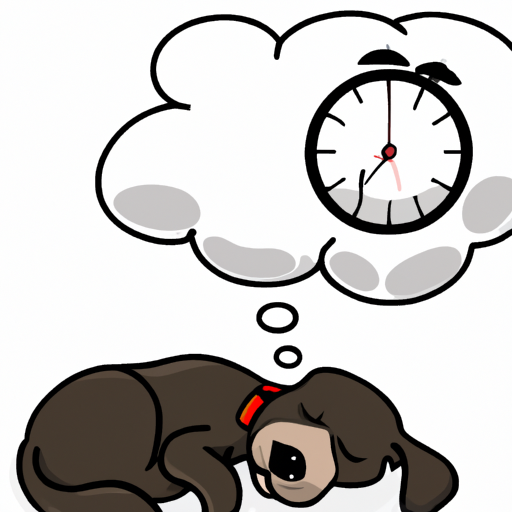Sleep is an essential part of your dog’s health and well-being. This article will explore the various factors that determine how much sleep your furry friend needs, and will provide some guidelines to ensure your pet is getting the right amount of rest.
Why is Sleep Important for Dogs?
Just like humans, dogs need sleep to function at their best. Sleep plays a crucial role in your dog’s overall health and well-being, including:
- Healing and repairing the body: During sleep, your dog’s body works to repair muscles, tissues, and other cells that were damaged during the day.
- Memory consolidation: Sleep also helps dogs remember and learn new things by strengthening neural connections.
- Immune system regulation: Like humans, dogs’ immune systems are strengthened during sleep, helping them fight off illnesses and infections.
Factors Affecting Your Dog’s Sleep Needs
The amount of sleep a dog needs can vary greatly depending on several factors:
- Age: Puppies and older dogs tend to sleep more than adult dogs. Puppies can sleep up to 20 hours a day, while senior dogs often need more rest due to health issues or decreased energy levels.
- Breed: Some breeds, like the Saint Bernard or the Mastiff, are known for being “lazy” and will sleep more than others.
- Activity level: Active dogs, like working dogs or those that get a lot of exercises, will need more sleep to recover.
How Many Hours Should Your Dog Sleep?
On average, most dogs sleep between 12 to 14 hours per day. But this can vary depending on their age, breed, and activity level. Here’s a simple table to guide you:
| Age/Breed | Average Sleep Duration |
|---|---|
| Puppies | 18-20 hours |
| Adult Dogs (Small Breeds) | 12-14 hours |
| Adult Dogs (Large Breeds) | 12-14 hours |
| Senior Dogs | Up to 18 hours |
How to Ensure Your Dog is Getting Enough Sleep
Ensuring your dog gets enough sleep is crucial for their health. Here are some tips to help:
- Provide a quiet, comfortable place for your dog to sleep: Dogs, like people, sleep best in a comfortable, quiet environment.
- Maintain a consistent schedule: Dogs thrive on routine. Try to keep your dog’s sleeping and waking times consistent.
- Exercise your dog regularly: Regular exercise is not only good for your dog’s physical health but also promotes better sleep.
Frequently Asked Questions (FAQ)
Q: My dog seems to be sleeping more than usual, should I be worried?
A: It could be due to a number of reasons including age, change in environment, or health issues. If you notice a drastic change, it’s best to consult your vet.
Q: Can dogs suffer from sleep disorders?
A: Yes, dogs can have sleep disorders like insomnia or sleep apnea. If you’re worried your dog isn’t sleeping well, consult your vet.
Q: Can I wake my dog up while they’re sleeping?
A: It’s best not to. Dogs, like humans, need uninterrupted sleep for good health. If you need to wake your dog, do so gently.
Remember, you are your dog’s caregiver. It’s your job to ensure they are getting the right amount of sleep. So, pay attention to their sleeping patterns and make necessary adjustments.



